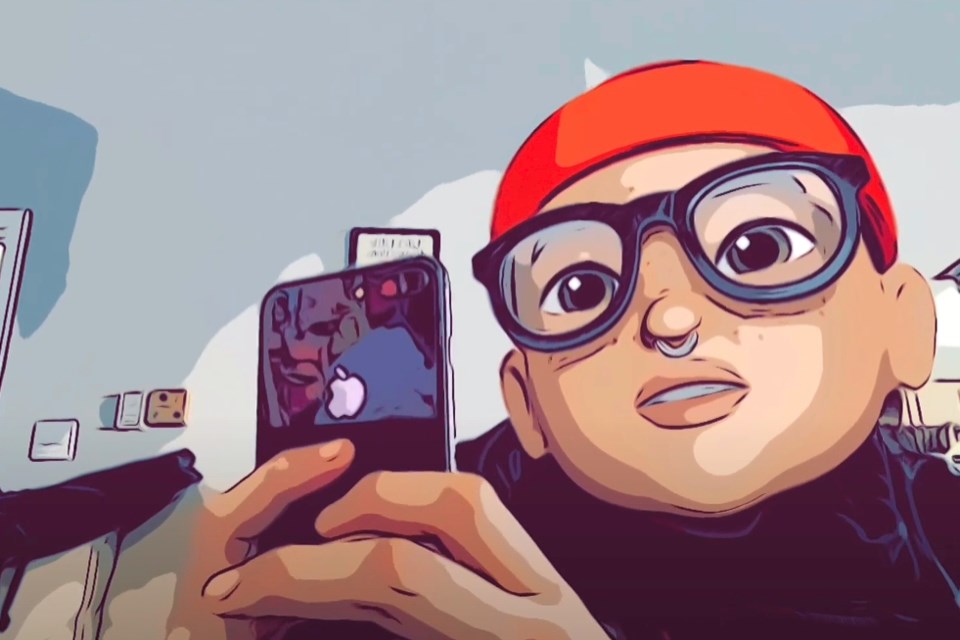Members of Nipissing First Nation are offering online language classes to help preserve the Nipissing dialect, Nishnaabemwin.
Language classes have been available for several years now, explained Jane Commanda, a Nipissing First Nation councillor who also serves on the language and culture committee.
There is a beginner’s class on Tuesday nights and Wednesday evening has a class for novice speakers. Both are “well-received,” Commanda said, and draw “between 12 to 20 people at each session.”
“For the most part it is Nipissing First Nation members” attending, she noted, but emphasized that “everyone is welcome to join.” Simply register ahead, “and they will send you a link to join” the live-stream video lesson.
The more the merrier, because there are not a lot of Nishnaabemwin speakers left, and the best way to preserve the language is to teach it to others.
A few years ago they did a count during a language class and it turned out there were 39 native speakers left, “and that was five or six years ago,” Commanda said, “so I’m sure there’s less now.”
Most speakers are older, usually 65 or over, Commanda noted, so there is a drive to make learning the language more attractive to youth.
Lesson plans have been adopted “from JK up to grade four,” Commanda said, “and those are in the schools already in this area.”
She mentioned that the seven-member language and culture committee is “trying to find better ways to have the young people connect” with the Nipissing dialect. Options could include using social media more to provide lessons, reach kids through video games or cartoons, “things that are going to make it fun for them” to learn.
A Sesame Street style show in Nishnaabemwin, perhaps. And the Aboriginal Peoples Television Network does offer some kid’s shows that help teach language, but Commanda noted the “programs are in Ojibway, but not in our dialect.”
To help clarify the language differences, Commanda explained that “Ojibway is one of the arms of the Algonquin language,” as Algonquin is the “overarching” language, and Nipissing “itself has its own dialect” of the Ojibway language.
“There are a lot of Ojibway speakers,” in the area, Commanda said, “but the Nipissing dialect is very distinct.”
Nipissing First Nation puts out a monthly newsletter entitled Enkamgak, and in the last issue, Glenna Beaucage and Joan McLeod Shabogesic wrote that “Nbissing people struggle today to learn their language,” noting it “is a highly inflected complex language of clarity and preciseness.”
They elaborate, explaining that the Nishnaabemwin dialect “is based on present time,” as “tense indicators show action taking place now, action that has already taken place and action that will take place.”
The authors emphasize “the verb is timeless,” and “everything rotates around the verb,” encouraging students to “learn the verbs first.”
“There is no gender” in the language.
Beaucage and McLeod Shabogesic also note the difficult in translating Nishnaabemwin into English, as “when we translate literally, we put literal meaning to highly complex concepts.”
As an example, “binoozhiihn does not translate directly to child,” they explain, the word “means ‘uplifting spirit.’”
Similarly, “kiwenzii does not translate to ‘old man,’ but to ‘person of the land,’” the authors highlight.
The barriers in translation can be overcome, but it takes a lot of work, as does evolving the language to make it relevant to contemporary times.
However, the work is worth it for Commanda and others on the front lines of language preservation. There is much at stake, as a loss of language equals a loss of culture.
See: Nipissing First Nation Chief says Indigenous languages revitalization is critical
“The people’s world view and their cultural identity, everything is in the language,” Commanda said. “The hard part of it is that our parents didn’t teach us because of the colonialism that was there before.”
Residential schools and other colonial institutions worked to eradicate First Nation languages, including the Nipissing dialect. Once children entered those doors, they were forced to leave their language behind.
“They were told not to speak their language,” Commanda said. “They were punished when they spoke their language,” and those who went through those schools “didn’t want that to happen to us.”
Which meant the language diluted generation after generation. Commanda mentioned that her mother, Lorraine, was a native speaker of Nishnaabemwin, as that Ojibway dialect was the only language she spoke with her family, within their home.
Now there are 39 speakers left in the community.
“She was forced to speak English” when she went to school, Commanda explained, and these colonial policies have left their legacy on language today, “a very hard barrier to get past,” Commanda admits.
Does Commanda feel the weight of preserving a language on her shoulders?
“Yes, for sure, all of us do, we all feel it,” and she feels “like we should have done a lot more in the past” to prepare for today, “learning and listening” to the language keepers and elders fluent in Nishnaabemwin, “grasping all of the patterns that are involved” in the words and structure.
“Our language gives our people identity and understanding,” Beaucage and McLeod Shabogesic noted in their article. “Our language gives our people the strength to find their Spirit and allows the nishnaabe spirit to nurture itself.”
And as rediscovering and sharing the language will strengthen cultural identity, the purpose is not only to materialize the past through present day phrases, but to allow for a new vision of the world.
As Beaucage and McLeod Shabogesic explain, “revitalizing our language will aid us to find Our Spirit strength to overcome the complexities of our present world, help us to nurture our emotional abilities to be a human being.”
For more information about upcoming classes—and to sign up—call 705-753-2050 or email [email protected] for details.
David Briggs is a Local Journalism Initiative reporter who works out of BayToday, a publication of Village Media. The Local Journalism Initiative is funded by the Government of Canada.



